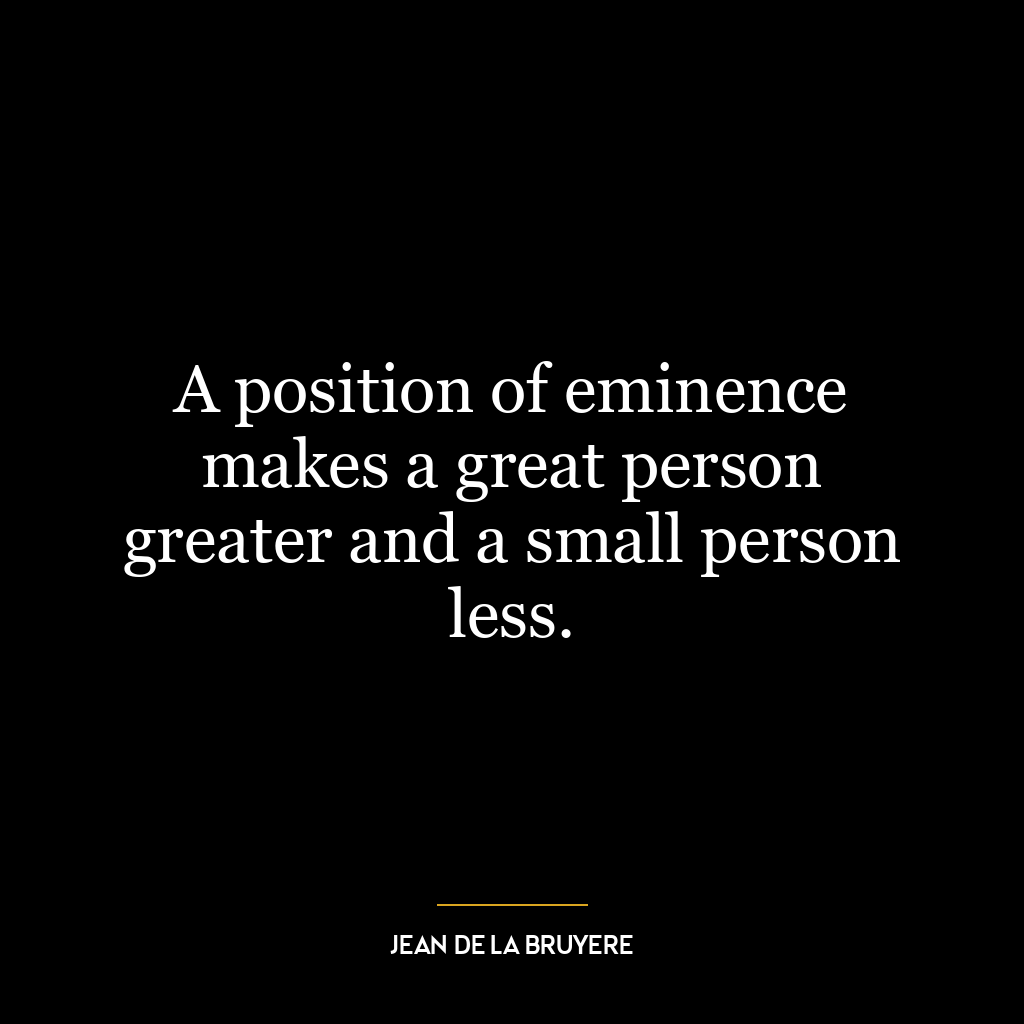This quote suggests that power and status can amplify a person’s inherent qualities. In the case of a great person, a position of eminence can enhance their greatness, allowing them to have a more significant impact and influence. It provides them with a platform to showcase their abilities, wisdom, and leadership, which can lead to more remarkable achievements and contributions to society.
On the other hand, for a person with less admirable qualities, the same position can highlight their shortcomings. It can expose their lack of competence, integrity, or other vital qualities. Thus, they become “less,” not in the sense of being lesser in stature or importance, but in terms of their character and ability to use their position constructively.
In today’s world, this idea is particularly relevant in various fields, such as politics, business, or entertainment. We often see leaders who use their positions to bring about positive change, inspire others, and make significant contributions to their fields. Conversely, there are also leaders whose actions and decisions have been criticized and have led to negative consequences. Their positions of power only served to magnify their flaws and shortcomings.
In terms of personal development, this quote can serve as a reminder of the responsibilities that come with power and status. It encourages us to strive for personal growth and improvement, especially if we aspire to positions of eminence. It suggests that we should cultivate positive qualities such as integrity, wisdom, and competence, which will be amplified when we reach a position of power. Moreover, it warns us of the potential pitfalls of attaining power without the necessary personal qualities, as this can lead to negative outcomes.















